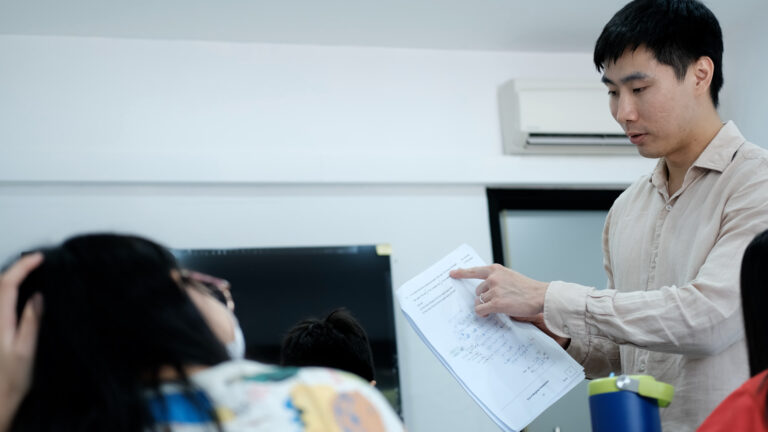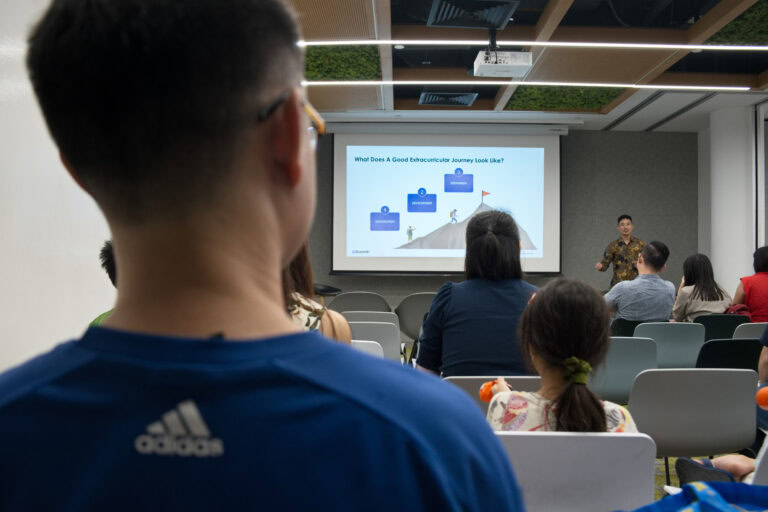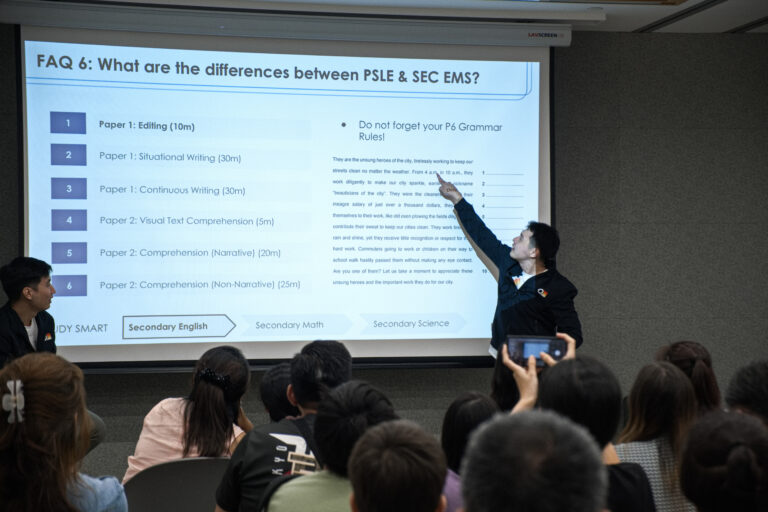This article is written by Dr Teo Boon Heng. Dr Boon is the Academic Director at Think Teach Academy. He completed his PhD in Passivated Contact Solar Cells under the NGS-PhD scholarship, sponsored by the National University of Singapore (NUS) and Singapore’s National Research Foundation (NRF) through the Singapore Economic Development Board (EDB) and Prime Minister’s Office (PMO). Prior to that, Dr Boon graduated from Imperial College London with a Master of Engineering in Materials Science & Nuclear Engineering.
What is a PhD?
A PhD (Doctor of Philosophy) is a doctoral research degree and the highest level of academic qualification one can achieve. It is an abbreviation of the Latin term Philosophiae Doctor which directly translates to “lover of wisdom” and “to teach”.
Although PhD candidates may embark on a plethora of subjects and fields of research, they all share a common set of pre-requisites, intrinsic qualities and approaches that support them to achieve their goals. In this article we share how the PhD mindset, strategies and methods are implemented in our teaching methods and curriculum. Also, we share how we encourage and instill in our students the useful PhD-level traits and habits that will prepare them not only for the PSLE, but as they navigate the many challenges that will arise in the years beyond primary education.
PhD Approach to PSLE
State-of-the-Art Research & Knowledge
Every PhD holder relentlessly pursues a deep understanding of their area of study. They conduct extensive reading and analysis into the most novel and current research findings and results via conference and journal publications. They engage deeply and interact with their peers in the field through academic events and collaboration projects. They are at the forefront of theories and technology for their research field, engaging in frequent debate and discussion. The Academic Tribe members of Think Teach Academy strive towards this every year. Our teachers take ownership of the scope of work and curriculum by updating themselves with subject syllabi, implementing recent changes to the topics and formats into our Think Teach Approach (Think Smart, Teach Smart) and 3D (Decode, Devise & Deliver) Method.
Standing on the Shoulders of Giants
“If I have seen further it is by standing on the shoulders of Giants” – Sir Isaac Newton (1675)
PhD candidates need to not only work hard, but also to work smart. With the advent of technology and the internet, gone are the days where PhD students trawl through large volumes of hardcopy books and journals to discover and learn about novel research and theories. Today, PhD students leverage on readily and well-compiled resources online for the latest publications and referencing.
At Think Teach Academy, we also strongly believe in thinking smart and teaching smart. Our teachers leverage on a variety of open-source information from schools, education institutions and private education entities to collate, compile, and make sense of today’s education scene and rubrics. From there, we develop our own set of proprietary pedagogy and curriculum for delivery to our students.

Planning & Time Management
One of the key tenets of a PhD graduate is the ability to manage their time. Over the span of their 3 — 5 years as a PhD student, there is minimal “hand-holding” or “spoon-feeding”. The overall responsibility lies with the PhD student, to optimise the limited time for reading, theorising, experimentation, analysis of results and inferring conclusions. In addition, the student also needs to incorporate time for meetings, seminars and discussion, writing abstracts for journals and articles for peer review. There is also a need to balance time for rest and play, while managing other commitments (co-curricular activities, leading projects and family).
At Think Teach Academy, our teachers deep-dive into the scope of work and plan out the most optimal learning process for our students. Our topics and concepts are carefully selected and curated throughout the academic year, preparing our students for the various formative and summative learning milestones. We keep our classes concise and effective, balancing class teaching and after-class revision accordingly.
Communicating Effectively
Being able to translate your thoughts into words is a paramount skill for any PhD candidate. PhD research students undergo a constant process of absorbing information, thinking deeply about the situation, and delivering their thoughts into easily understood words. This immensely time consuming and tireless process allows PhD students to articulate themselves and convince their superiors and peers about their ideas. Most of the time, this level of interaction takes place with people with more knowledge than themselves.
At Think Teach Academy, we also emphasise the need to communicate effectively with all stakeholders: students, colleagues and parents. Our teachers regularly practice effective communication through Lesson Observations (LO) and Supervised Teaching (ST) with students. We conduct training sessions where teachers present material to their colleagues and to a large audience. Our transparent method of learning allows everyone to gain, through feedback and insights.
Proof Reading
The editorial process of proofreading is crucial to any PhD student’s display of quality work. Every article or journal paper that is published will have gone through multiple levels of peer or supervisory reading, correction and amendment. Only through this arduous process can the student justify his piece of work fit for showcase to the academic fraternity.
Think Teach Academy’s curriculum similarly goes through several iterations of feedback and correction within the subject team before they are delivered to students for their learning.

Instilling PhD Qualities in Our Students
Defining Your Own Success
The PhD journey is predominantly a lonely one. A PhD supervisor can only guide you in a broad direction. The PhD candidate needs to find his own path of success. There are many occasions where roadblocks seem unmountable, and there are also fewer occasions where there is light at the end of the tunnel. Sometimes we cannot help but compare and look beside us to see the leaps and bounds that some other PhD candidate has achieved. It is only on hindsight that we truly see how the dots connect for yourself in the most unique way.
At Think Teach Academy, we believe that every student can find their own unique path to success. There is no need to compare oneself with your peers. Although every Primary 6 student aims to excel in the PSLE, every single one of them will complete this milestone in their own unique way. We encourage every one of our students to achieve self-realisation, to know their strengths and maintain them, while understanding their weaknesses and continue to hack at it.
Think Smart, Study Smart
The ability to be innovative and flexible are important traits in the PhD journey. Repeating the same experiment 1,000 times over will only yield the same results. PhD students need to know when it is time to move on, or to adapt, modify, and try something else.
At Think Teach Academy, our Academic Performance Team closely monitors the aptitude and progress of all our students. This is achieved through summative and formative assessments, understanding the students’ strengths and weaknesses, and implementing a strategy for them to progress and improve. We communicate with parents and students through our Student Progress Report updates and Parent-Teacher Meeting sessions. We advise parents and teachers on how to move forward for each student, which areas they are already strong at, and which areas they need to work on for the next quarter or 6 months.
Discipline
The true test of a PhD candidate’s success and commitment is in the way they manage their time. Being left alone to manage your own time requires a high level of discipline and self-control. It is easy to procrastinate and move non-urgent tasks to another day and head out to relax and play. But there is a time for all things.
The Think Teach student is encouraged to manage study and play effectively. We live in a unique time of social media and smartphones. Our teachers emphasize the need for our students to focus when studying (to put their phones away), and to focus on playing when it’s time to take a break.




